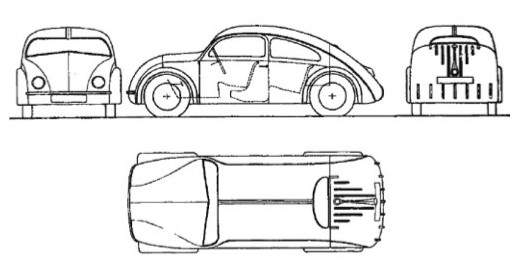Extension of TRIPS waiver to Covid-19 therapeutics and diagnostics.
The Ministerial Conference of the World Trade Organization (WTO) decided in June that all “developing countries” can waive the protection of intellectual property necessary for the production and distribution of Covid 19 vaccines, including all processes, technologies and ingredients required for this (“TRIPS Waiver”). The term “developing country” is so broad in this context that it even includes the People’s Republic of China.
What is the TRIPS Agreement? The WTO states on its website: “The WTO Agreement on Trade-Related Aspects of Intellectual Property Rights (TRIPS) is the most comprehensive multilateral agreement on intellectual property (IP). It plays a central role in facilitating trade in knowledge and creativity, resolving trade disputes over IP, and ensuring that WTO Members have the leeway to achieve their domestic policy objectives. It frames the intellectual property system in terms of innovation, technology transfer, and public welfare. The agreement is a legal recognition of the importance of the links between intellectual property and trade and the need for a balanced intellectual property regime. https://www.wto.org/english/tratop_e/trips_e/trips_e.htm.
The coronavirus pandemic reignited the global debate over whether the multilateral trade regime protecting intellectual property rights (IPR) was restricting access to important medical products. The AIDS crisis in Africa was admittedly a negative example, where pharmaceutical companies (exploited) their monopoly and stood in the way of access to affordable AIDS medicines in Africa. Today, we are faced with unequal distribution of vaccines and medicines around the world. Patents have a “bad name” in this context. That is why, despite the flexibilities already enshrined in the WTO Agreement on Trade-Related Intellectual Property Rights (TRIPS), India and South Africa, along with a large number of developing countries, submitted a proposal in October 2020 for a temporary waiver in response to Covid-19, which has now been adopted by the Ministerial Conference. However, the reasons for the unequal distribution of Covid vaccines and medicines are not unique to patents. In fact, they are manifold, ranging from poor health structures to inadequate information campaigns to insufficient logistics on the ground. Poorer countries lack production expertise and capacity, and the ability to maintain the necessary refrigeration until the vaccine reaches the patient. There is also the injustice of unequal distribution, as richer countries have secured vaccines early through procurement contracts. It is not about patents. This is also why the TRIPS Waiver will not help at all to provide access to vaccines and medicines.
The pharmaceutical and biotech industries have been surprisingly silent on this issue, at least in terms of public discussion. Can the industry sit back because “only” Covid-19 vaccines are affected, or because the TRIPS Waiver falls short of the original requirements? No, because no matter how the TRIPS Waiver was specifically designed, it sends the wrong signal to the public. The TRIPS Waiver seems to confirm the narrative that patents stand in the way of equitable access to medicines, only maximize the profits of pharmaceutical giants, and cause millions of people to die. After all, if this were not so, why would the WTO, including the U.S., Europe and Germany, decide to abandon patents?
We should not sit back, because the same forces are now seeking an extension of the TRIPS waiver to all therapeutics and diagnostics that are helpful to Covid-19 patients. This applies to therapeutics that are effective against SARS-CoV-2, but also against other viruses, and likewise to therapeutics that can generally reduce mortality in covid patients, but are by no means specific to covid. This would include drugs for sepsis or pulmonary edema, but also immunosuppressive or anti-inflammatory drugs, IL-6-Ras, etc. There is a very good chance that the TRIPS waiver will be extended accordingly.
Cui bono? Certainly not the patients in developing countries, because the lack of access to medicines is due to unfair distribution, not patents.
Qui nocet? Certainly it hurts the system that provided the life-saving vaccines in such a short time. It will affect funding for smaller, innovative biotech companies. It may also affect other technical areas. If the message is that patents must be abandoned when humanity relies on a particular technology, what about technologies related to climate change mitigation and alternative energy, for example?
Public discussions lead to public perception and thus to political decisions. If we don’t like political decisions, we have to leave our “IP bubble” and participate in public discussions.




